Lenin and the Llamas, Grūtas Park, Lithuania
Zagan the motorhome’s in Lithuania, in the lakeside car park at Grūtas Park (N54.02469, E24.07854). You’re allowed stay here overnight, despite the huge ‘no parking overnight’ sign, for €6 a night. It seems the idea of charging for overnight parking might be a new one, since Helen (and Chris – a fab Australian couple who were also staying here in their van) had a right job getting the ticket lady to take her money!
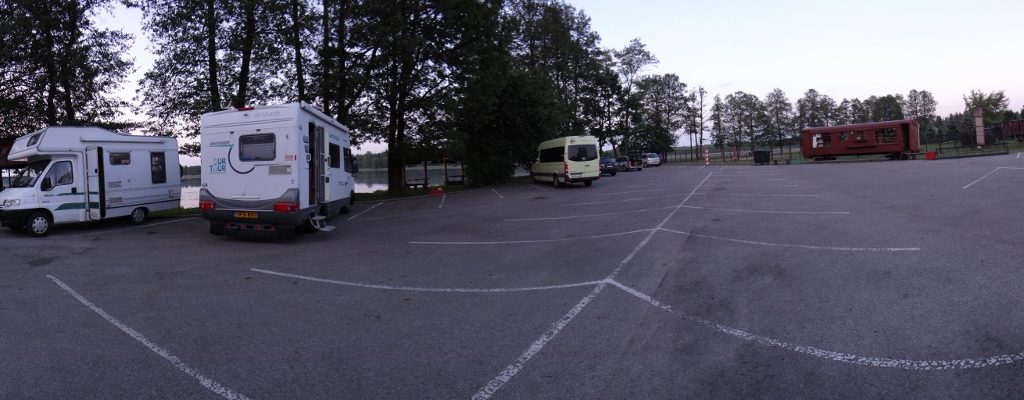
Zagan in Grūtas Park, Lithuania
Yesterday we crossed from Poland. Our ancient Lonely Planet referred to an hour or two’s wait at the border. Nah. Not any more, although time does jump forwards an hour as you leave Poland. Lithuania’s come a long way in the past 20-odd years. Until 1990 the place was part of the USSR, now it’s in the EU, uses the Euro and is in the Schengen zone. It also has a super-speedy 4G mobile network, which costs an incredibly low €3 for 3GB valid for 30 days, and is very simple to buy and activate. Just pick up the packet in the supermarket, pop it in your phone, call a number using the English instructions, wait a few minutes and boom, you’re in.
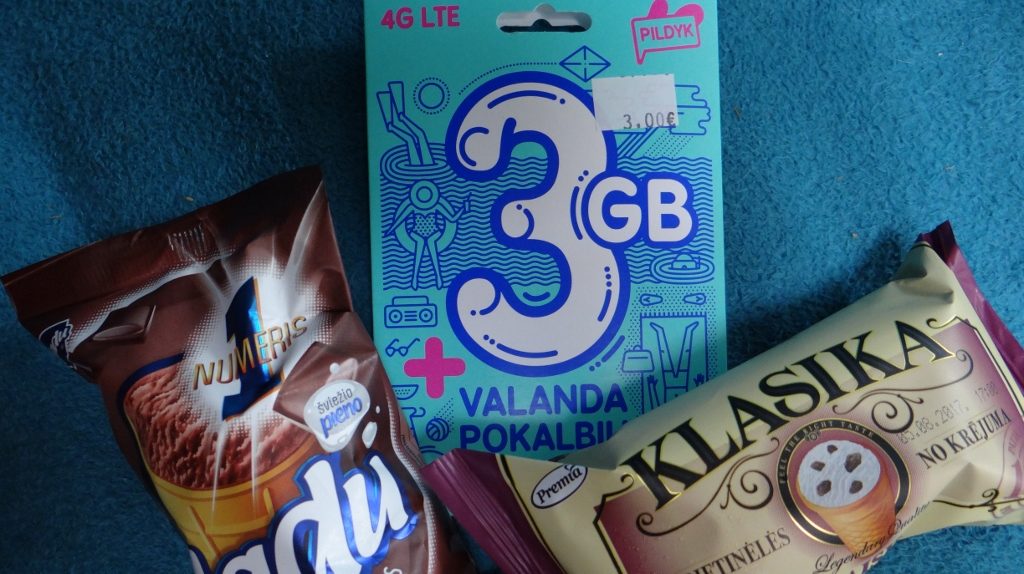
Our first shop in Lithuania – ice cream and a SIM card! Oh, and two cans of baked beans…
Having never been to the Baltics, we’re excited. A new country and a whole load of new stuff to see. Once we’d done getting our Internet access sorted (one aborted attempt by me failing to explain what I wanted in a smaller shop, we headed to a supermarket and Ju sorted it), and helped jump start a car, we rolled through countryside and villages here. There didn’t seem a huge change as we crossed the border and drove here. Poland wasn’t part of the USSR, while Lithuania and the other two Baltic countries was. Quite what this meant, I don’t know, but the cows here still have chains around their heads, houses have metal roofs and there’s a serious amount of farmland and trees to be seen. There were more houses on this side of the border, some of them built from wood gone grey with age.
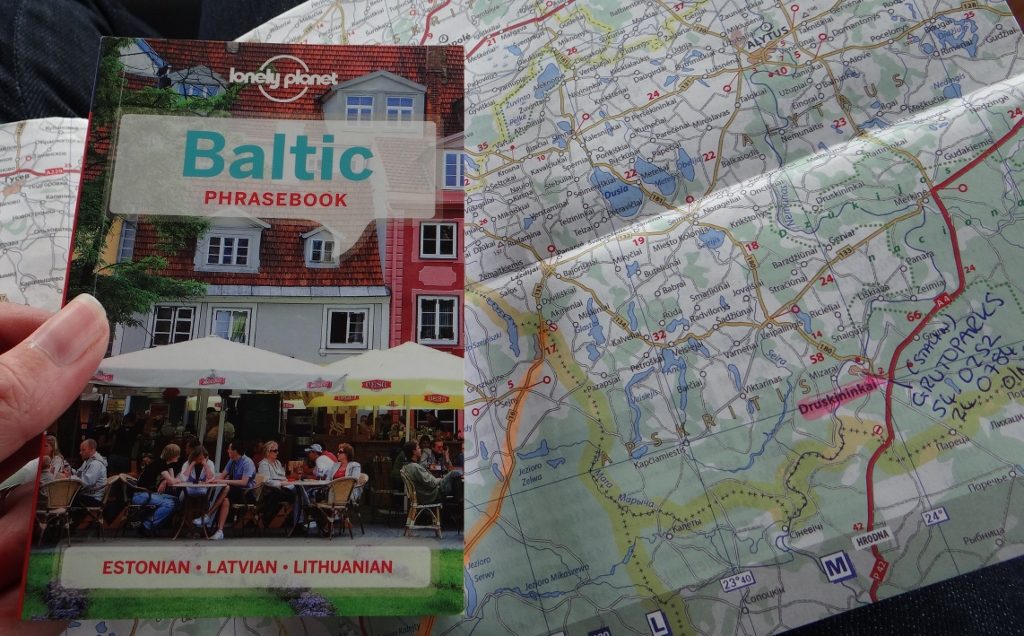
Back in the USSR, we’re finally in the Baltics!
So, Grūtas Park, what’s this place all about? Like Momento Park we visited outside Budapest some moons ago, there’s a gathering of ex-Soviet statues here. Only here, the statues are jumbled together with a zoo, which adds a weird dimension to an otherwise sober experience. The privately owned Grūtas Park was put together by Lithuania’s Mushroom King, an entrepreneur, after the collapse of the USSR when the locals took the opportunity to remove large numbers of large statues from the towns and cities. Not everyone was keen for the park, especially as the owner chose to create it with a Russian Gulag theme, the hated forced labour camps.
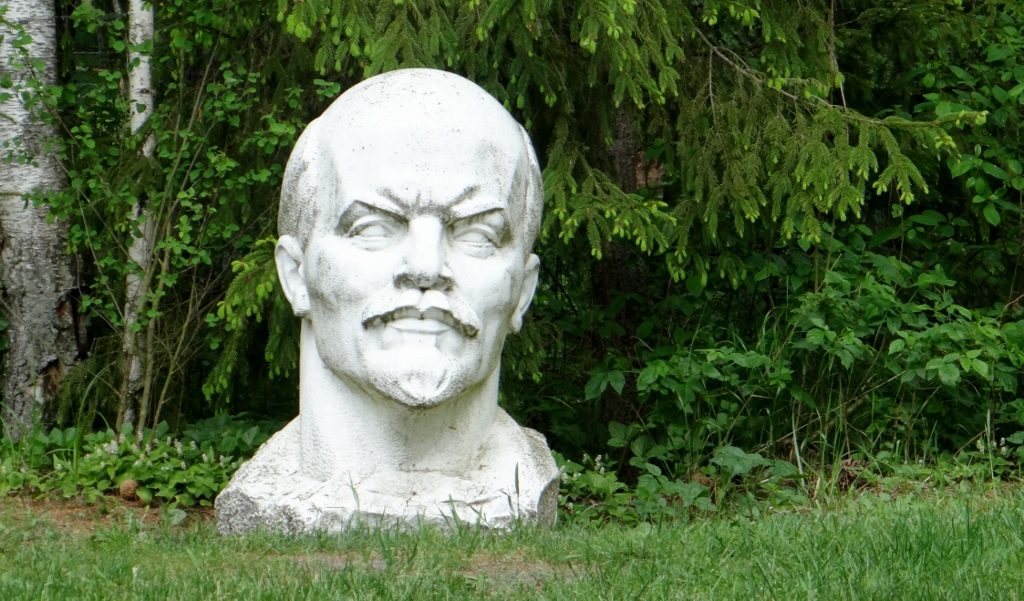
Lenin looking severe
Just to my left there’s a rusting barbed-wire fence, a watchtower, a wood-sided railway wagon (presumably a replica on one used to move thousands of unfortunate Lithuanians), and a sand-path for spotting footprints. The whole Gulag theme’s a bit lost though. Behind the wire emus peg it around on three-toed feet pecking cameras, while llamas serenely graze, their ears flicking around at flies in the sunlight. Inside the camp (€6 each to get in, so €12.25 for the both of us. Huh, where did that 25c come from?), there are statues spread throughout the woods, still emitting an aura of importance, menace and power, despite being displaced from their eminent positions.
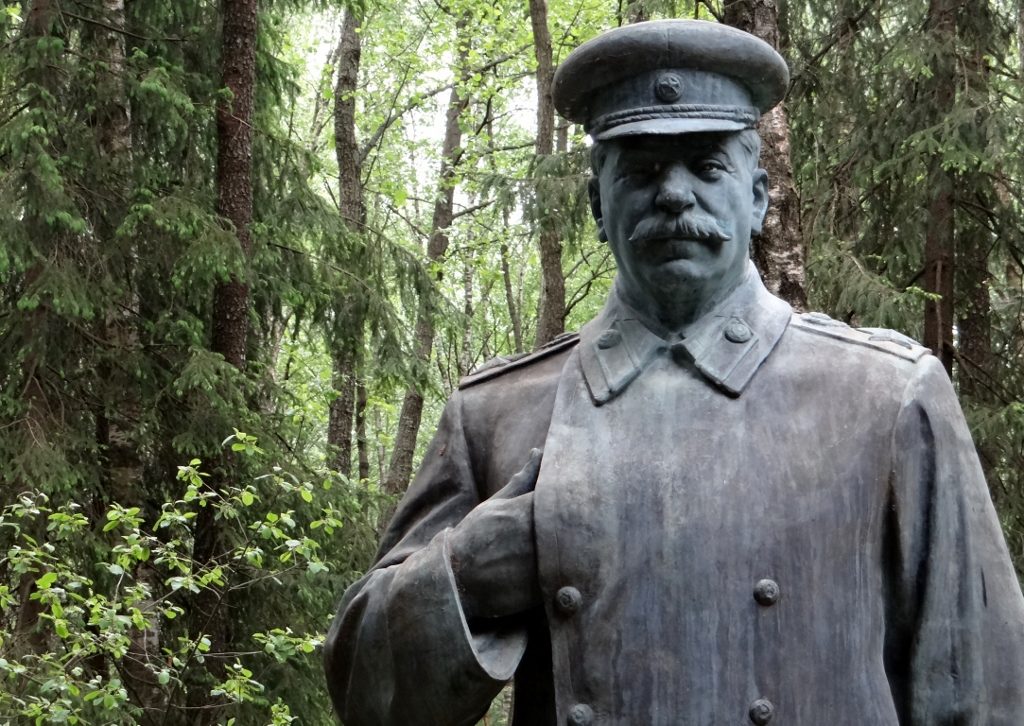
Stalin at Grūtas Park
I don’t claim to know a great deal about communism. As far as I can work out, the big idea was this: over the centuries, a small number of elite have held all of the power and money, while the broader population worked under their suppression. Under communism, the elite would be removed, and the workers would be given control over their own destinies. The elite probably wouldn’t want this to happen, so a revolution would be needed to kick them out, and depending on how you viewed communism, the use of extreme and widespread violence was considered perfectly acceptable to achieve this.
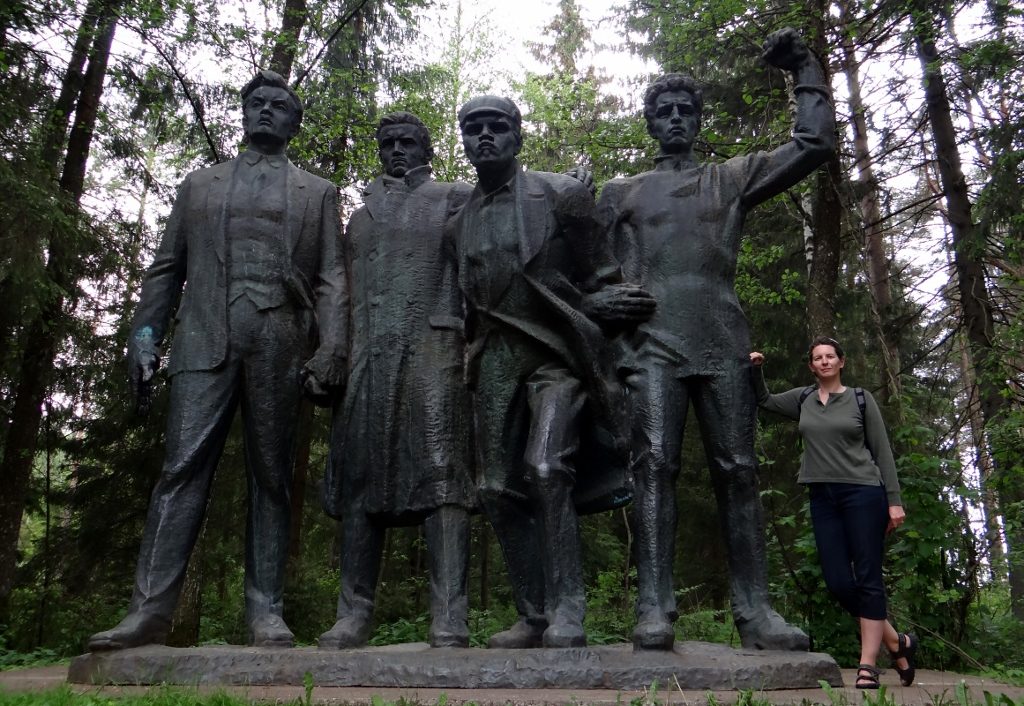
These four guys, called ‘The Communards’ on the information sign, having us thinking of the British pop band, were all shot at the same time for being communists
So, after World War 2, Lithuania ended up part of the USSR, whether the balance of the population liked it or not. Farms and factories were forcibly removed from rich private owners, and wealth was spread out among the poor. Kind of a Robin Hood style of government? A heroic way of running a society one might think, only the enforced experiment failed. George Orwell did a good job of explaining the whole mess in Animal Farm, in which the pigs rise up to defeat the human exploiters, only to take their positions and in turn exploit the other animals. The ideal of everyone sharing power and wealth was an idealistic one, but it just didn’t fit with human nature. Eventually, after decades of oppression, Lithuania forced the break-up of the USSR and rushed headlong towards the West.
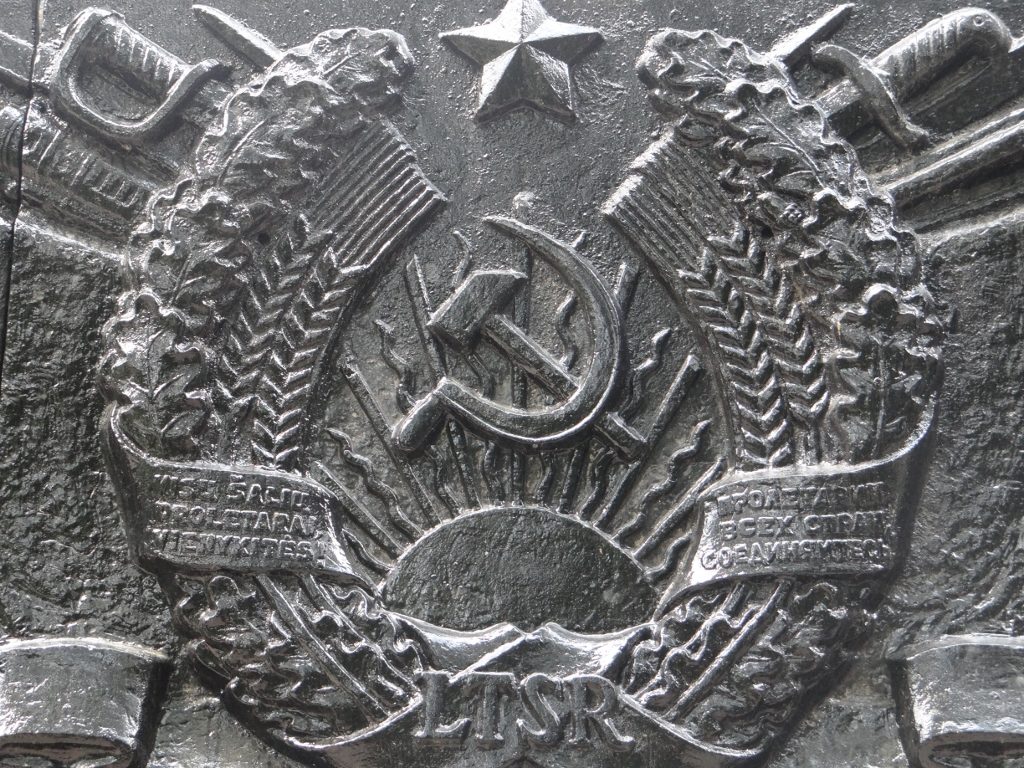
The Lithuanian Socialist Republic
Walking the park, past endless statues small and large (nothing as gargantuan as those we saw in Ukraine, Bulgaria and Budapest), Russian music plays out in one ear while nippers laughing in a play park confuse the other ear. There are museum buildings stacked with 1980’s Olympic Mascot Bears, communist pins, libraries of books, dolls in national dress and horrific photos of those the regime chose to kill. As outside, the interior of the buildings evoked mixed emotions, although the guardians stood with guarded faces watching to ensure we didn’t snaffle a wee Lenin to pop in the kitchen.
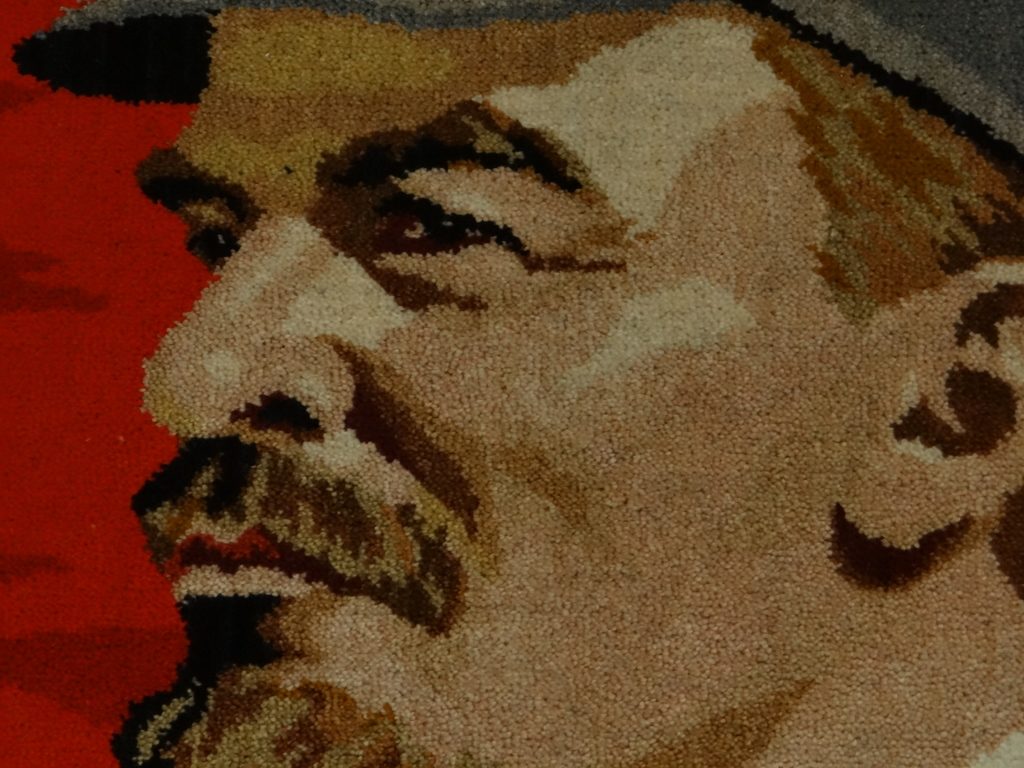
Lenin carpet anyone? Personality cult? What personality cult?
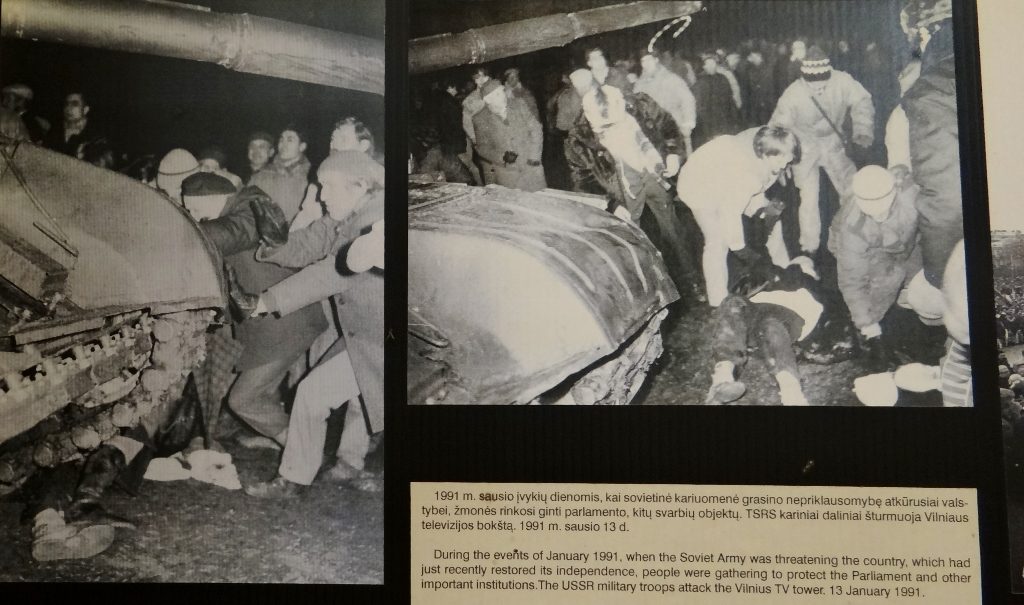
Soviet tanks doing some final killing before finally letting Lithuania go
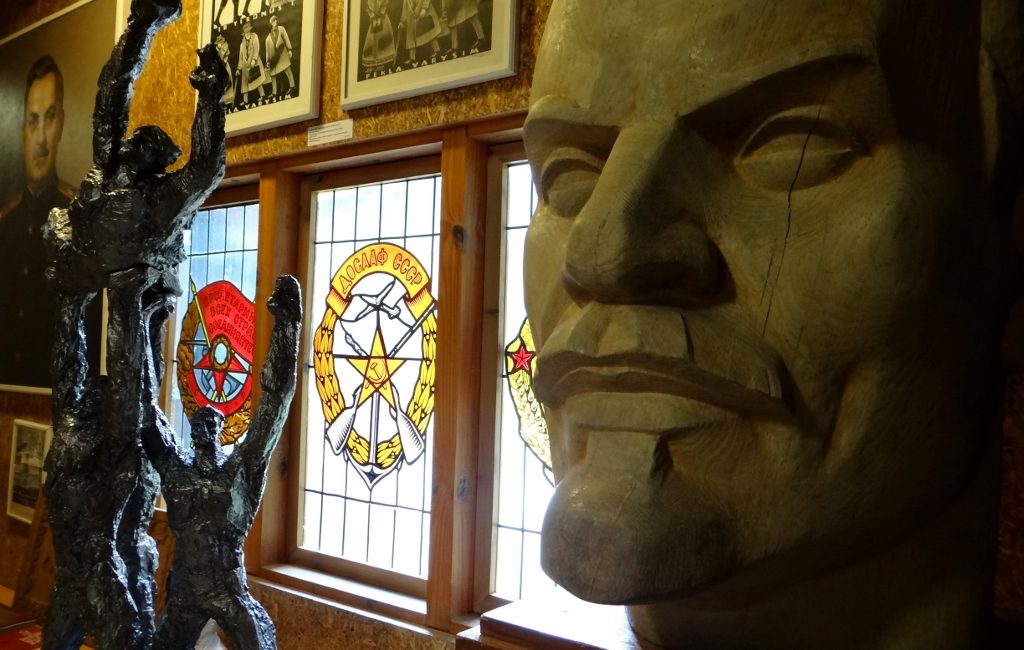
There are a lot of Lenins in here
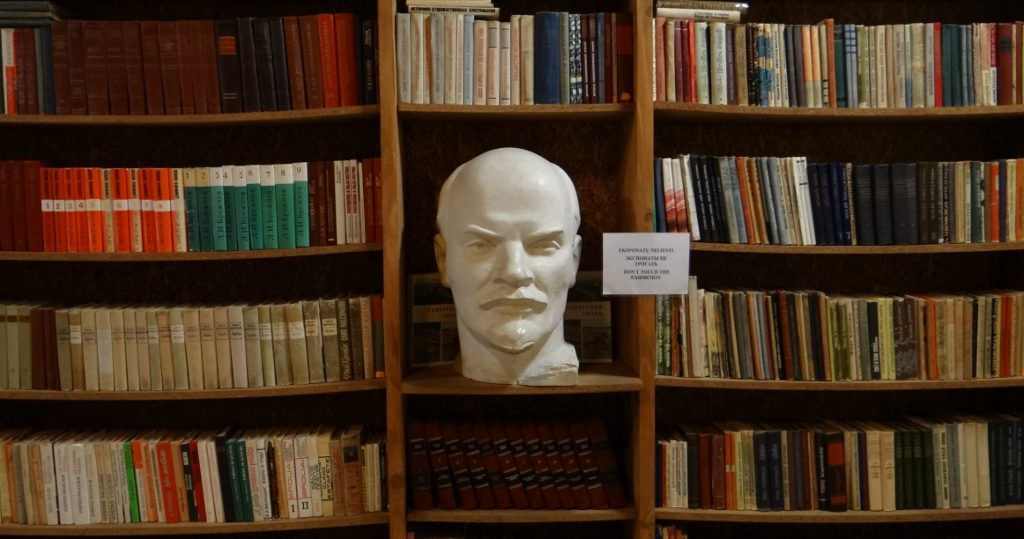
More Lenin
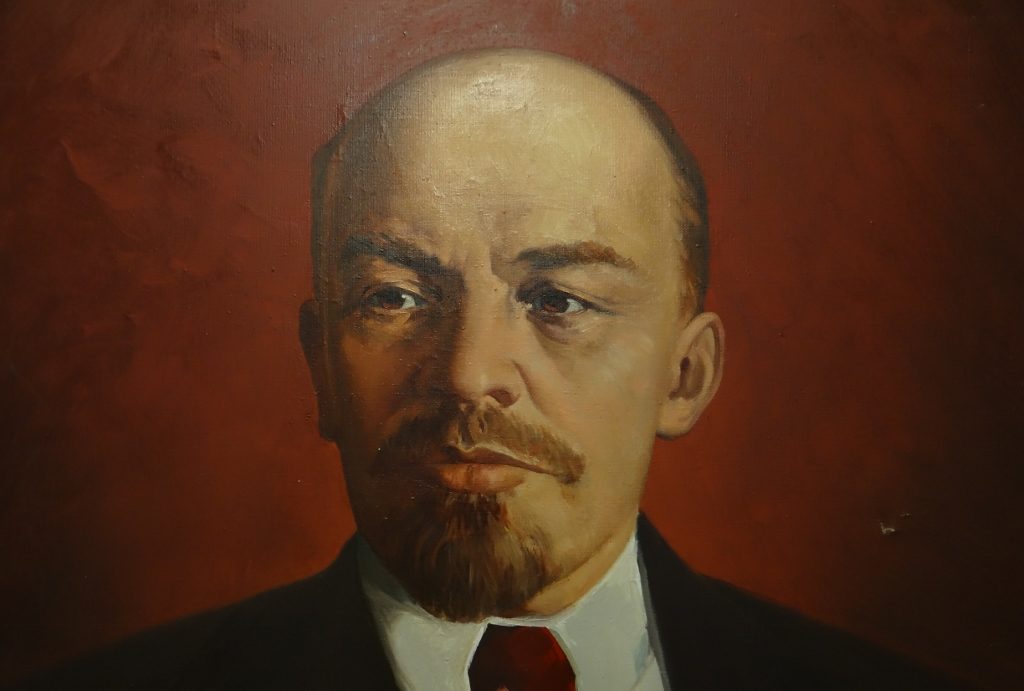
And more Lenin. OK, you get the picture
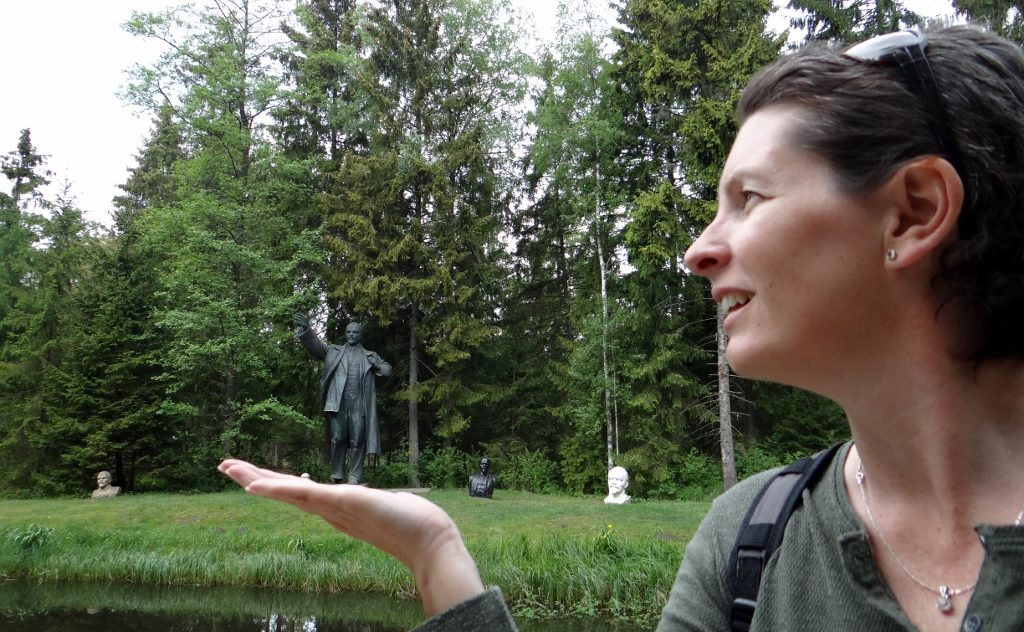
Oi, put that Lenin back!
As we rounded out the park, we came across the bears. Four of them, looking pretty forlorn in a grim enclosure. A wildcat was pacing the cage alongside them. Further along stood cage upon cage of birds of prey. The zoo’s not the most pleasant of things to see, and seems entirely at odds with the overall nature of the place. Reading up, the owner wanted to make the site more of a theme park than a museum, and initially wanted to ship visitors into the site on a gulag-style train, but the government felt that was a step too far.
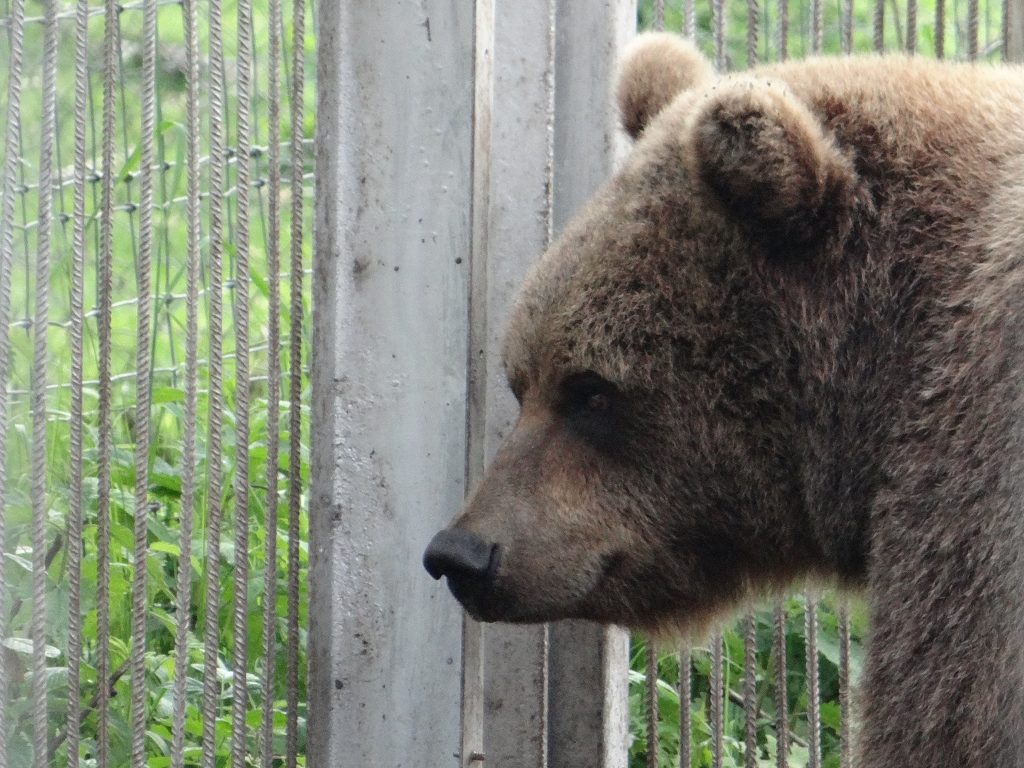
Sorry-looking bear at Grūtas Park
The park’s been an interesting introduction to the country. Charging €6 a pop in a country where the average take-home wage is €7000 a year, it feels a real capitalist poke in the eye to the ideals stood inside. Aside from us, Helen and Chris, all the other visitors are in Lithuanian-registered cars and buses, so the locals appear to be intrigued (even nostalgic?) enough to come.
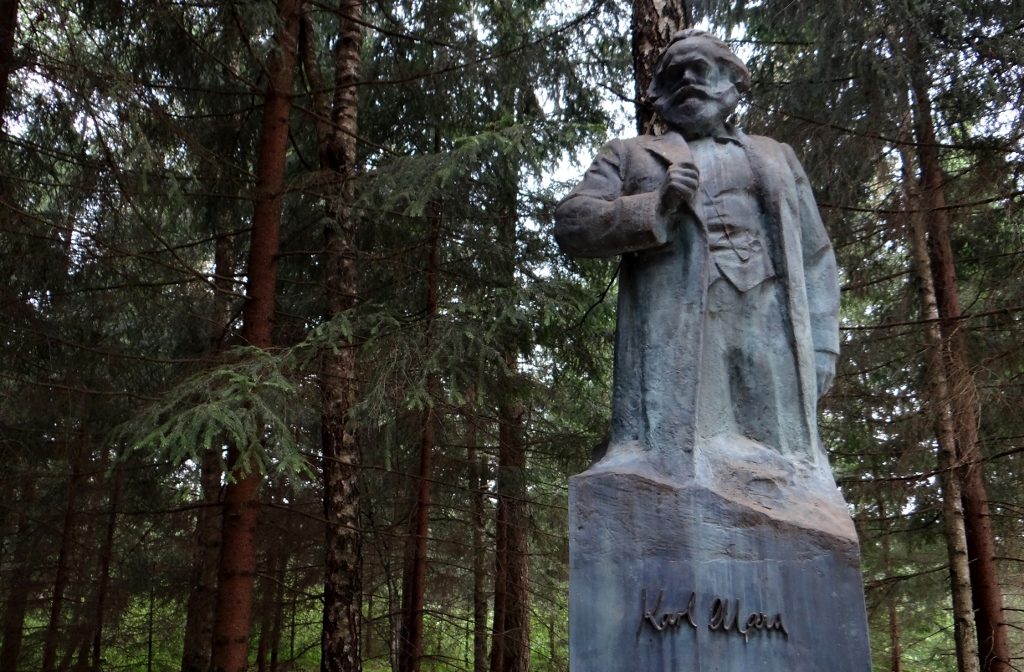
Karl Marx, the original(ish) communist
And back into the real world, where we all live in car parks. We got chatting with Helen and Chris, a wonderful Australian couple who’ve been travelling Europe on and off for five years. They’ve just entered Lithuania too, and are heading north along a similar route to us, so hopefully we’ll bump into ’em again. Helen crafted a pasta dinner for us all, and we sat alongside the lake supping beer and wine and enjoying the opportunity to speak English to like-minded car-park dwellers! This morning my eyeballs ache, so we’re holding station a while before taking in a bit more Baltic. Bring it on.
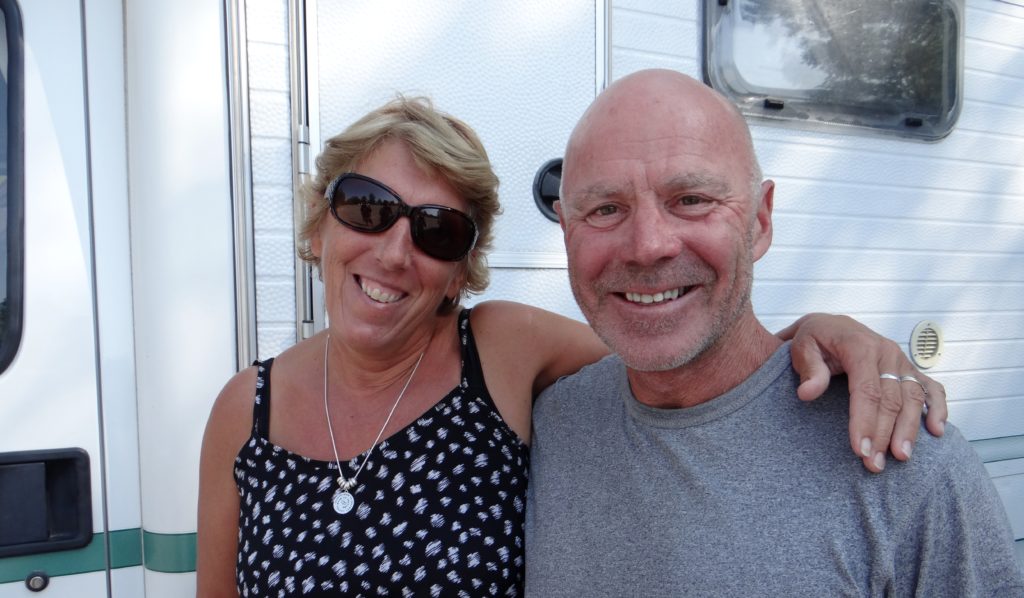
Seriously well-travelled Helen and Chris and their motorhome
Right, I’m off, I’ll leave you with a few more photos from Grūtas Park. Cheers, Jay
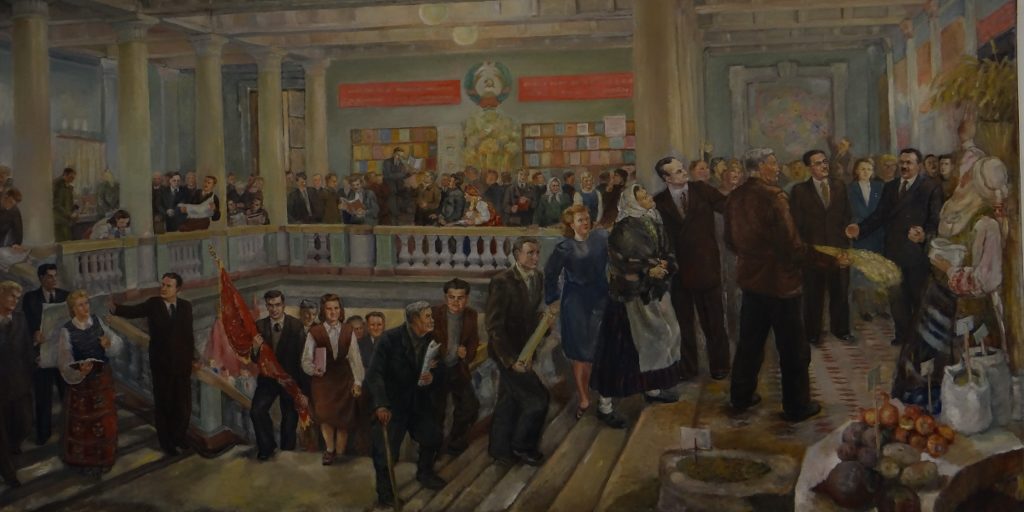
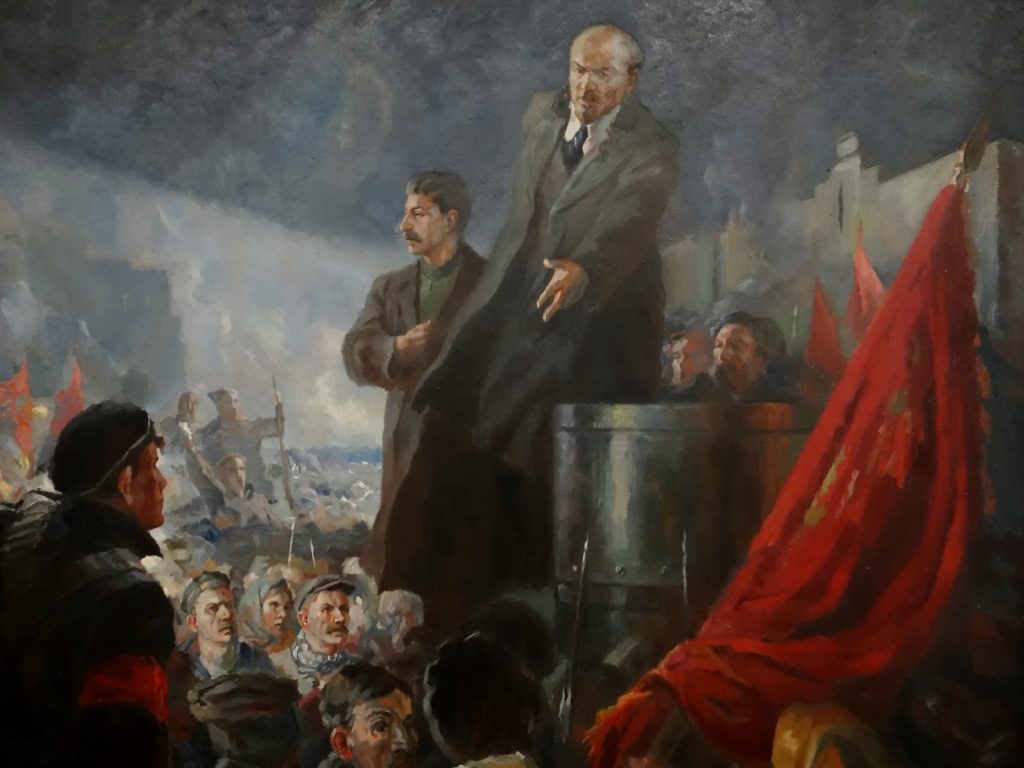
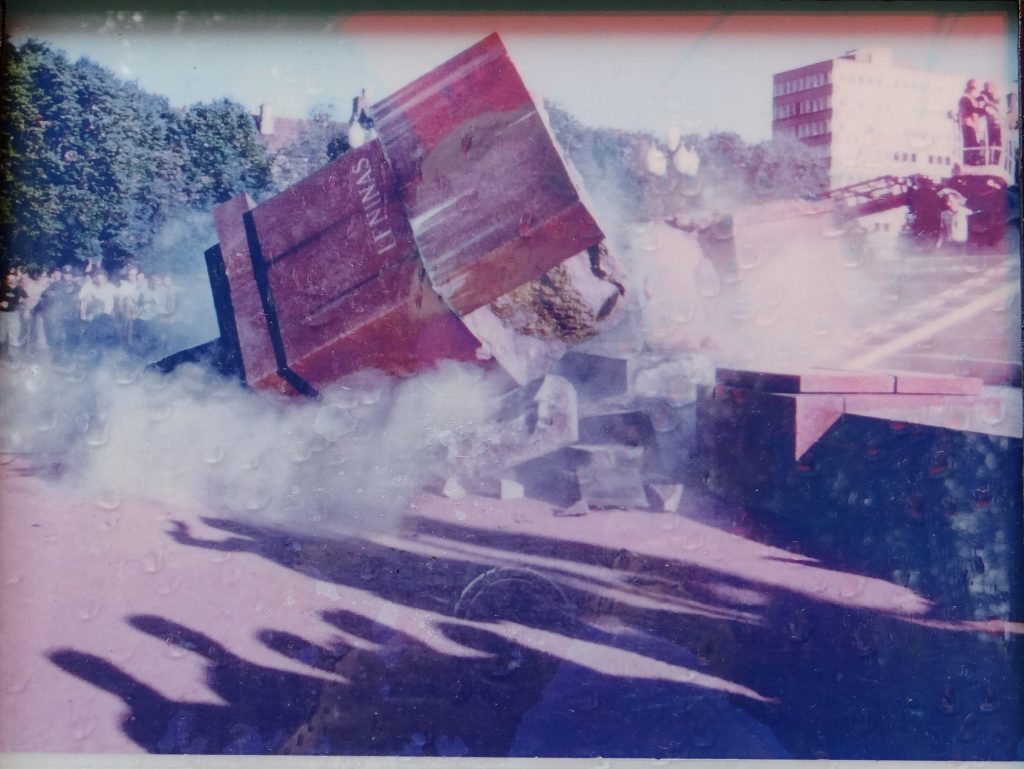
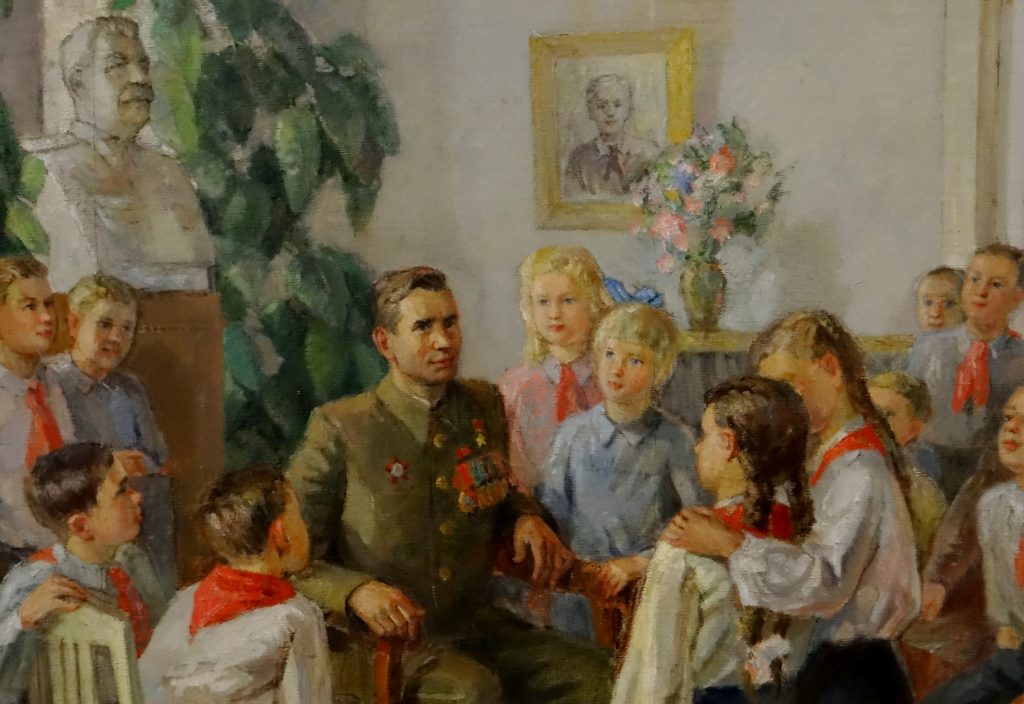
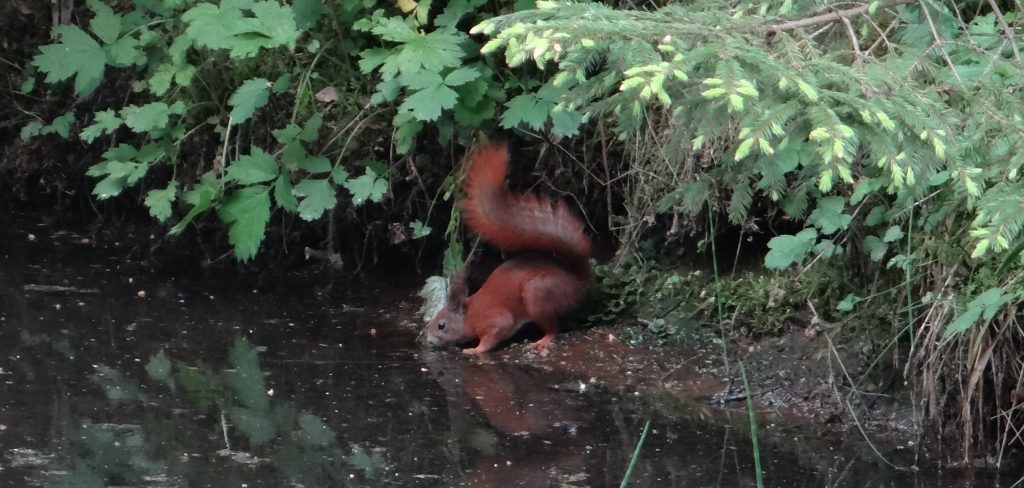
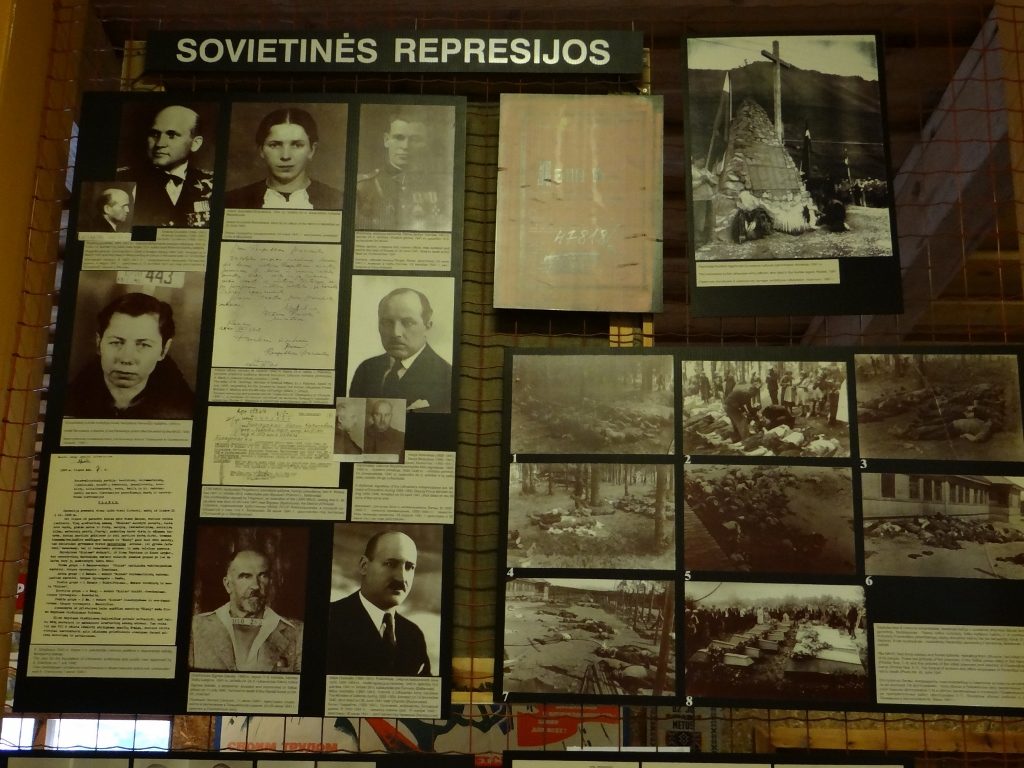
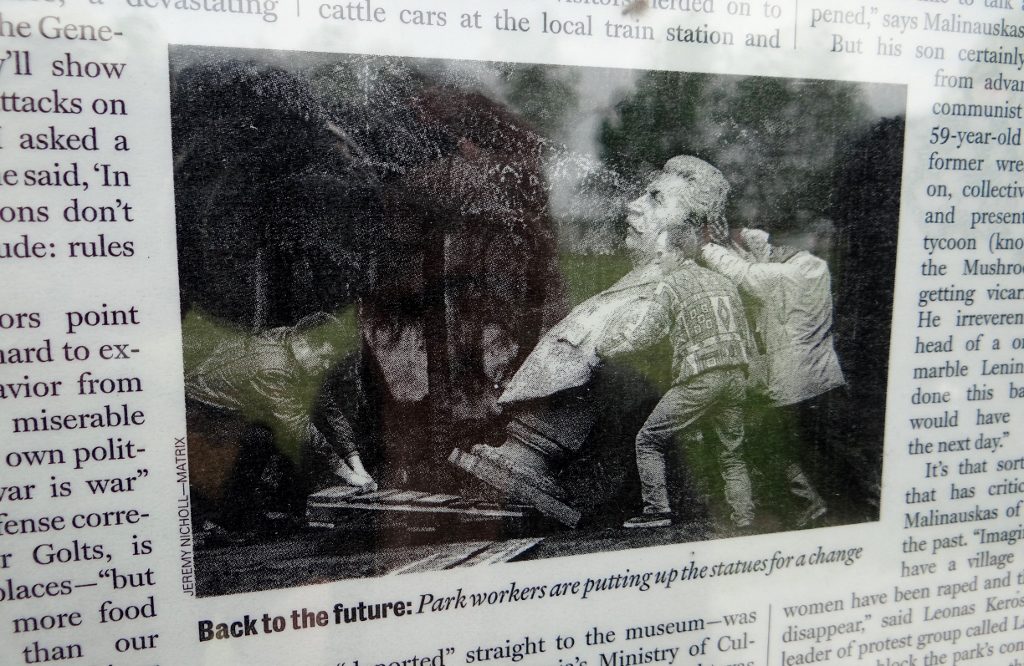
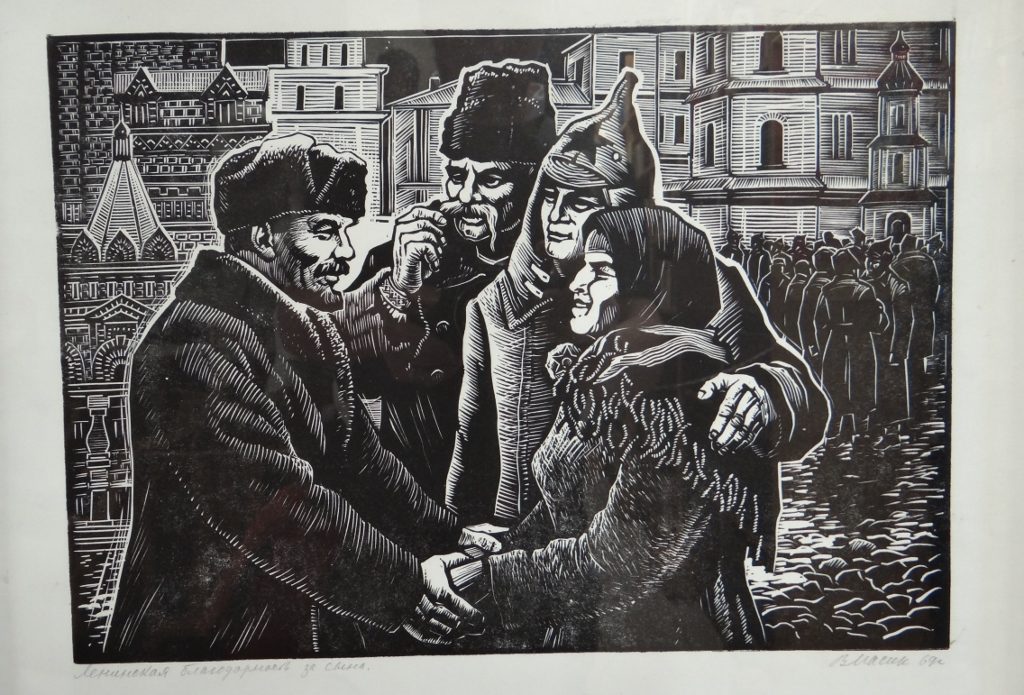
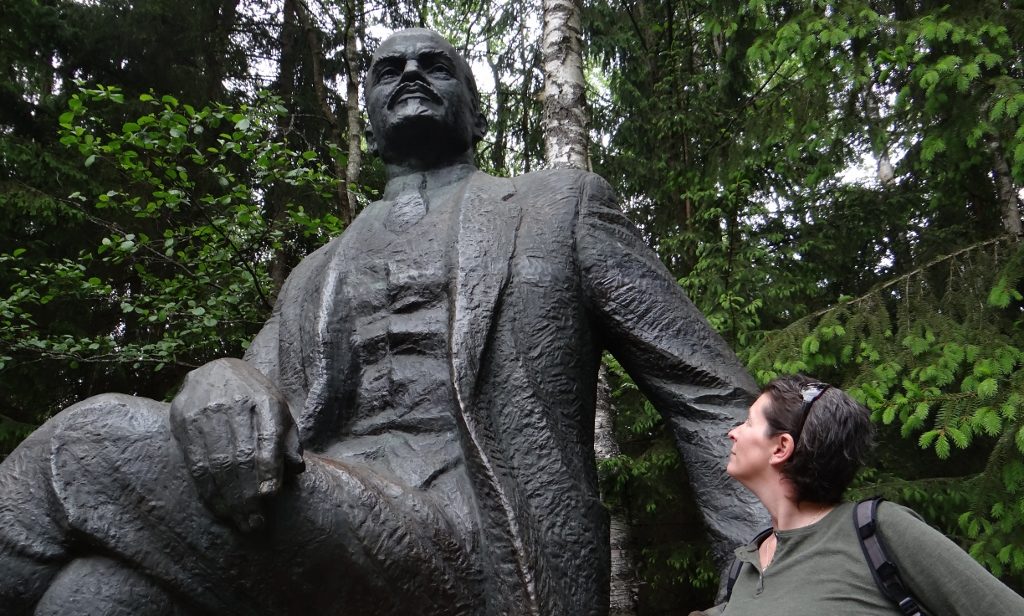
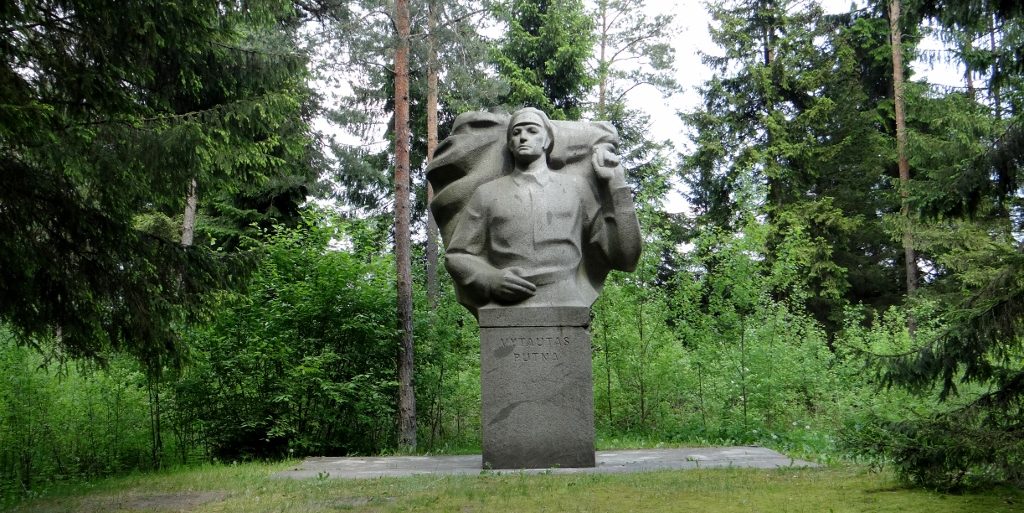
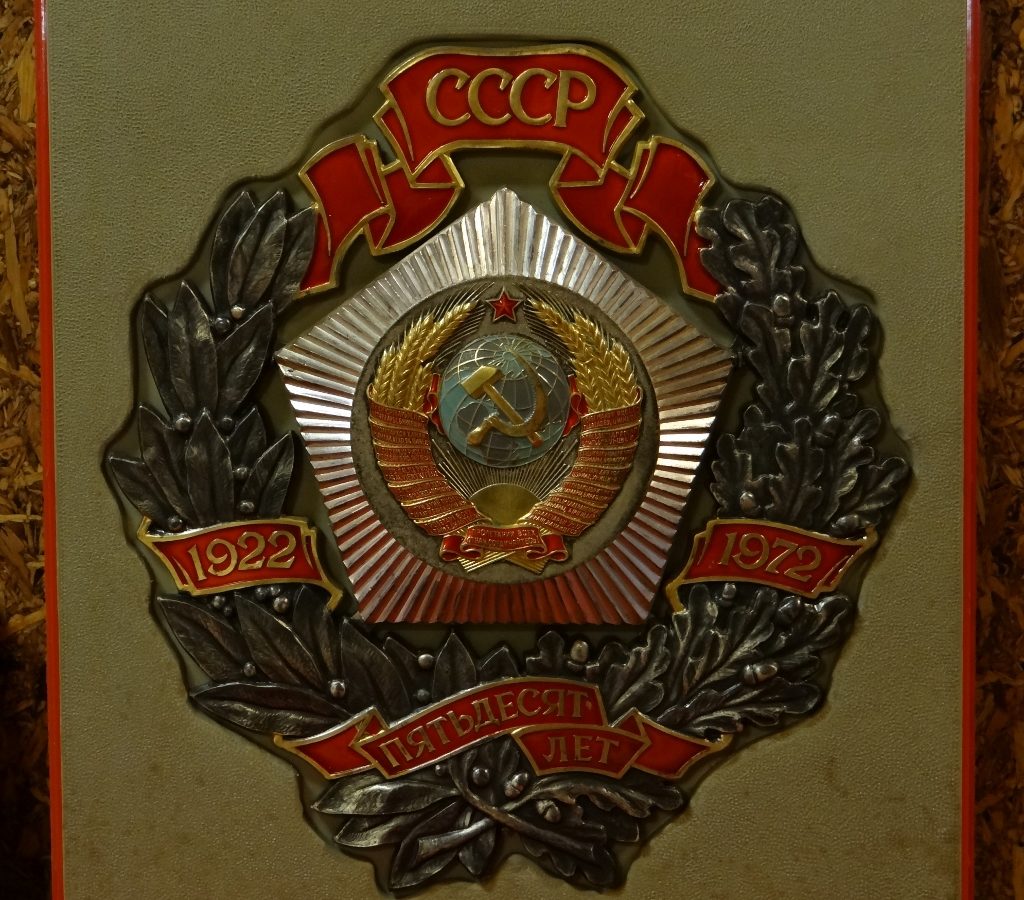
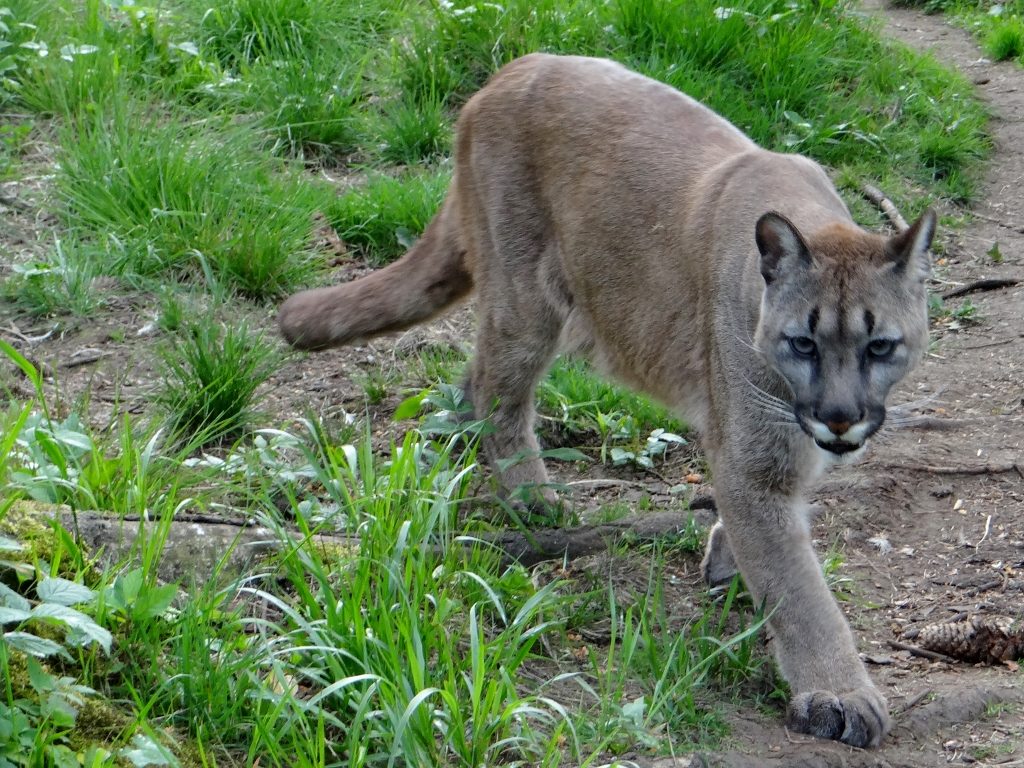

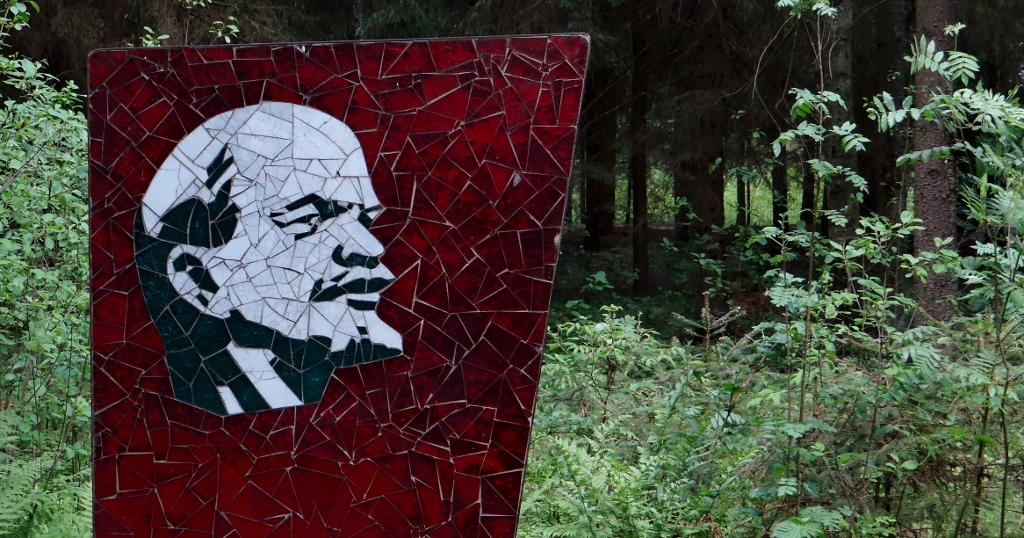
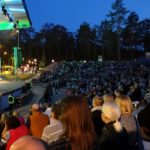
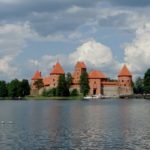
A land where even the squirrels are red! A pity they have been almost driven out of the UK by the American greys. Even nature seems to reflect politics.